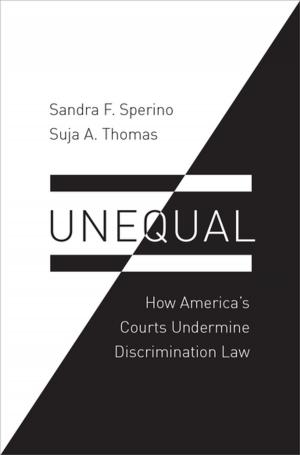Islam and Liberal Citizenship
The Search for an Overlapping Consensus
Nonfiction, Religion & Spirituality, Middle East Religions, Islam| Author: | Andrew F. March | ISBN: | 9780199887064 |
| Publisher: | Oxford University Press | Publication: | March 27, 2009 |
| Imprint: | Oxford University Press | Language: | English |
| Author: | Andrew F. March |
| ISBN: | 9780199887064 |
| Publisher: | Oxford University Press |
| Publication: | March 27, 2009 |
| Imprint: | Oxford University Press |
| Language: | English |
How can Muslims be both good citizens of liberal democracies and good Muslims? This is among the most pressing questions of our time, particularly in contemporary Europe. Some argue that Muslims have no tradition of separation of church and state and therefore can't participate in secular, pluralist society. At the other extreme, some Muslims argue that it is the duty of all believers to resist Western forms of government and to impose Islamic law. Andrew F. March is seeking to find a middle way between these poles. Is there, he asks, a tradition that is both consistent with orthodox Sunni Islam that is also compatible with modern liberal democracy? He begins with Rawls's theory that liberal societies rely for stability on an ''overlapping consensus'' between a public conception of justice and popular religious doctrines and asks what kinds of demands liberal societies place on citizens, and particularly on Muslims. March then offers a thorough examination of Islamic sources and current trends in Islamic thought to see whether there can indeed be a consensus. March finds that the answer is an emphatic ''yes.'' He demonstrates that there are very strong and authentically Islamic arguments for accepting the demands of citizenship in a liberal democracy, many of them found even in medieval works of Islamic jurisprudence. In fact, he shows, it is precisely the fact that Rawlsian political liberalism makes no claims to metaphysical truth that makes it appealing to Muslims.
How can Muslims be both good citizens of liberal democracies and good Muslims? This is among the most pressing questions of our time, particularly in contemporary Europe. Some argue that Muslims have no tradition of separation of church and state and therefore can't participate in secular, pluralist society. At the other extreme, some Muslims argue that it is the duty of all believers to resist Western forms of government and to impose Islamic law. Andrew F. March is seeking to find a middle way between these poles. Is there, he asks, a tradition that is both consistent with orthodox Sunni Islam that is also compatible with modern liberal democracy? He begins with Rawls's theory that liberal societies rely for stability on an ''overlapping consensus'' between a public conception of justice and popular religious doctrines and asks what kinds of demands liberal societies place on citizens, and particularly on Muslims. March then offers a thorough examination of Islamic sources and current trends in Islamic thought to see whether there can indeed be a consensus. March finds that the answer is an emphatic ''yes.'' He demonstrates that there are very strong and authentically Islamic arguments for accepting the demands of citizenship in a liberal democracy, many of them found even in medieval works of Islamic jurisprudence. In fact, he shows, it is precisely the fact that Rawlsian political liberalism makes no claims to metaphysical truth that makes it appealing to Muslims.















